Hong Kong Computational and Theoretical Physics Study Group 2023
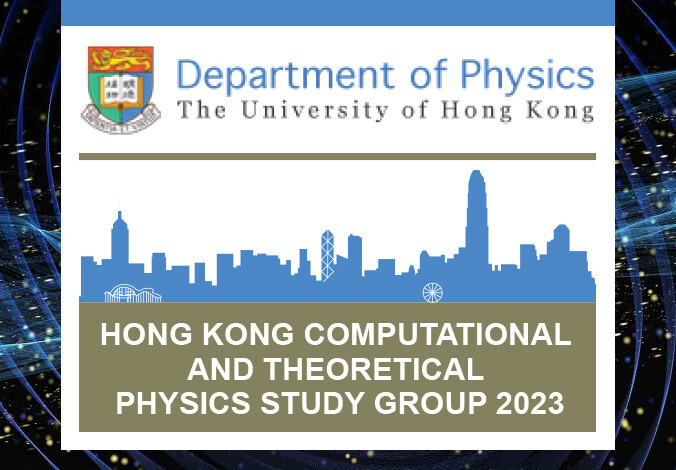
- Date & Time
- March - June 2023
- Venue
- Face-to-face and Zoom

(Public Lecture) When nature entangles millions of particles: from quantum materials to black holes
Professor Subir Sachdev
March 14, 2023 | 4:30pm
- This lecture will be designed to introduce these forefront topics in current physics research to a general audience.

Introduction to quantum spin liquids
Professor Subir Sachdev
March 14, 2023 | 5:30pm
- Professor Subir Sachdev will use the parton method to describe the simplest spin liquids on the square lattice: those with emergent Z2, U(1), and SU(2) gauge fields and he will also discuss confinement transitions of these spin liquids.

The cuprate phase diagram: theory of the pseudogap metal, d-wave superconductivity, and charge order
Professor Subir Sachdev
March 15, 2023 | 4:30pm
- Professor Subir Sachdev will begin with an introduction to the phase diagram of the hole-doped cuprates.

Universal theory of strange metals
Professor Subir Sachdev
March 16, 2023 | 4:30pm
- Professor Subir Sachdev and his team present a theory of strange metals in two dimensions which reproduces all of these features, and is also in general agreement with the frequency and T dependence of optical conductivity measurements in the hole-doped cuprates. The theory describes a Fermi surface coupled to a critical boson, the latter representing an order parameter or an emergent gauge field.
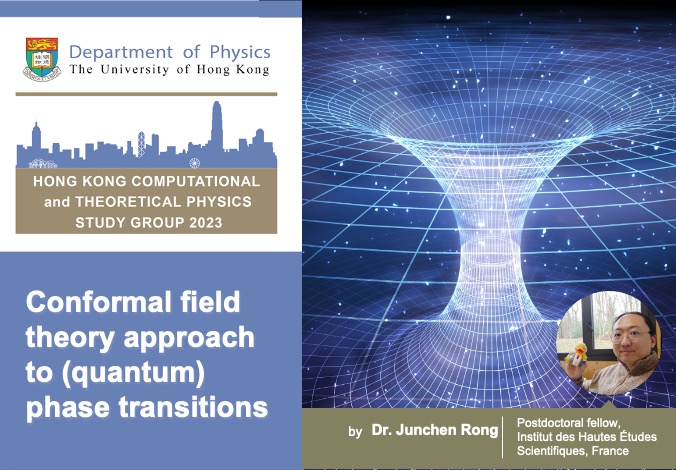
Conformal field theory approach to (quantum) phase transitions
Dr. Junchen Rong
March 16 & 18, 2023 | 10:30am
- Dr. Junchen Rong will explain the basics of conformal field theory (CFT) and then discuss how to apply CFT methods to study various phase transitions such as structural phase transitions and quantum dimer models.
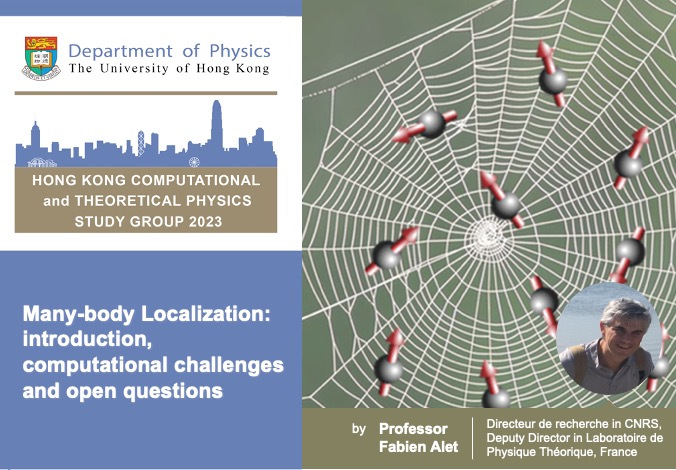
Many-body Localization: introduction, computational challenges and open questions
Professor Fabien Alet
March 17 - 19, 2023 | 3:30pm
- Professor Fabien Alet will present the key features of the many-body localization phenomena, including relation to Anderson localization, experiments and numerical computations, the various numerical techniques for simulating MBL and provide a bird’s-eye view on open questions, future directions in the field and connect to other related phenomena.
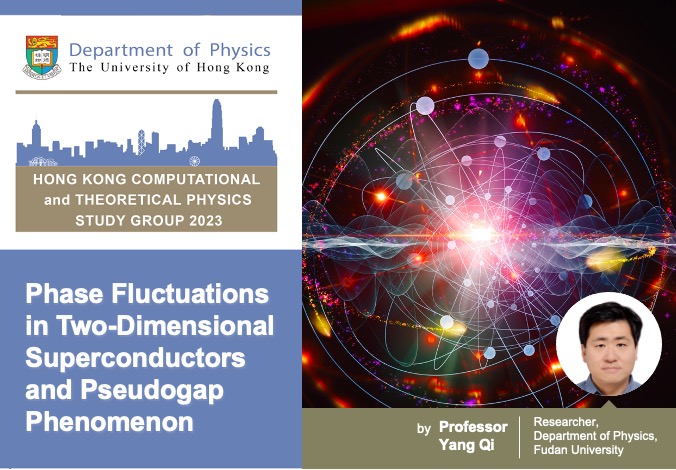
Phase Fluctuations in Two-Dimensional Superconductors and Pseudogap Phenomenon
Professor Yang Qi
March 17, 2023 | 10:30am
- Professor Yang Qi will show his team study on the phase fluctuations in the normal state of a general two-dimensional superconducting system with s-wave pairing.
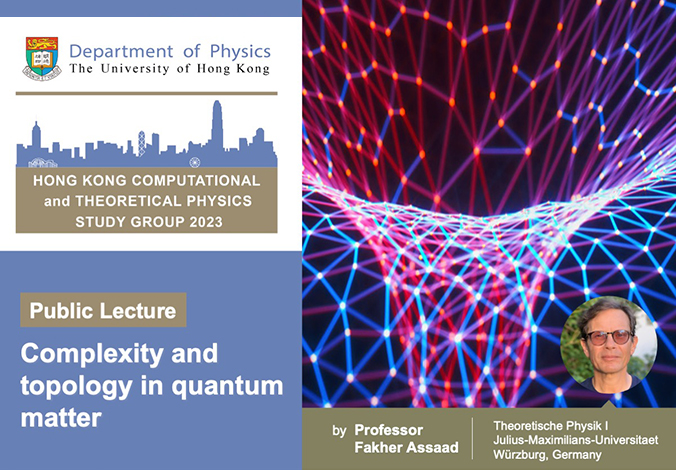
(Public Lecture) Complexity and topology in quantum matter
Professor Fakher Assaad
April 25, 2023 | 4:00pm
- In this lecture, Professor Fakher Assaad will explain how topology, properties of an object that are preserved under continuous transformations, dominates our understanding of the solid state.
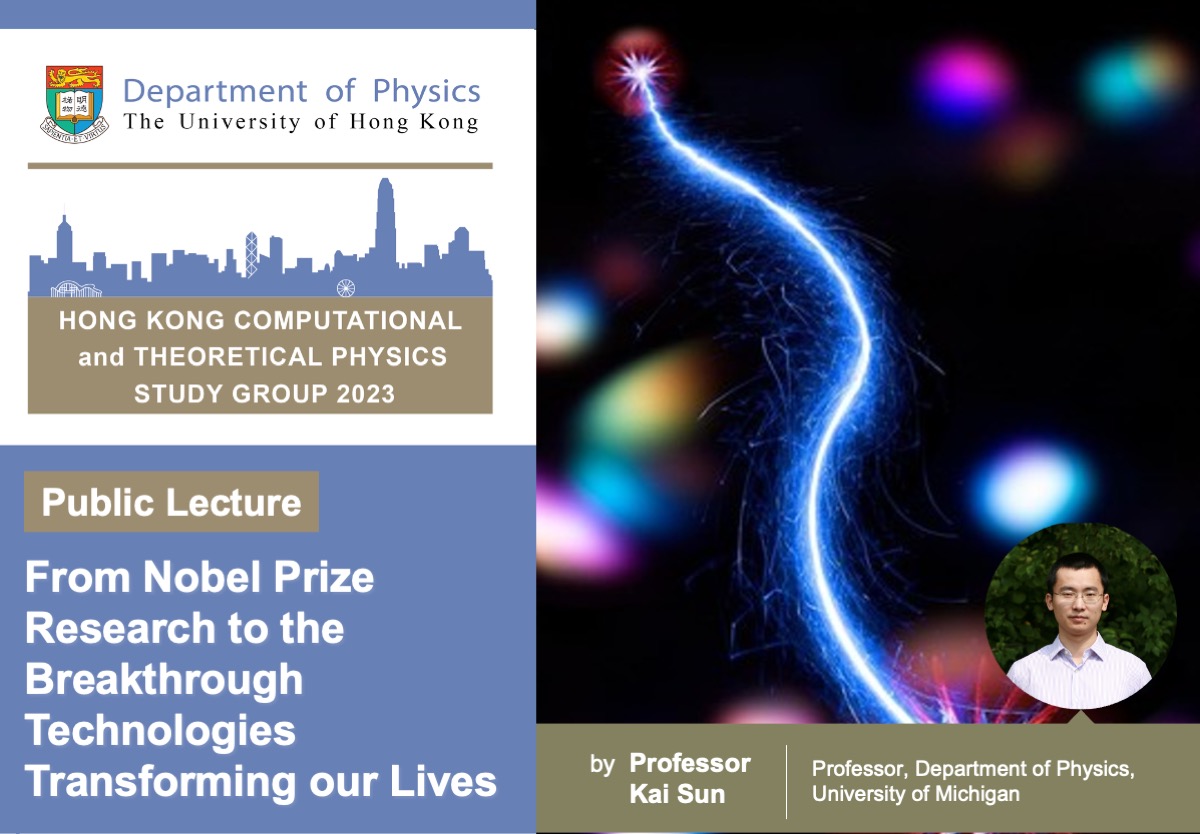
(Public Lecture) From Nobel Prize Research to the Breakthrough Technologies Transforming our Lives
Professor Kai Sun
April 26, 2023 | 1:00pm
- In this upcoming lecture, we will explore the fascinating relationship between physics and technology. Professor Kai Sun will invite you to share your thoughts on the most significant technological developments of the new millennium, and explain how each of them can be traced back to Nobel Prize-winning physics discoveries.
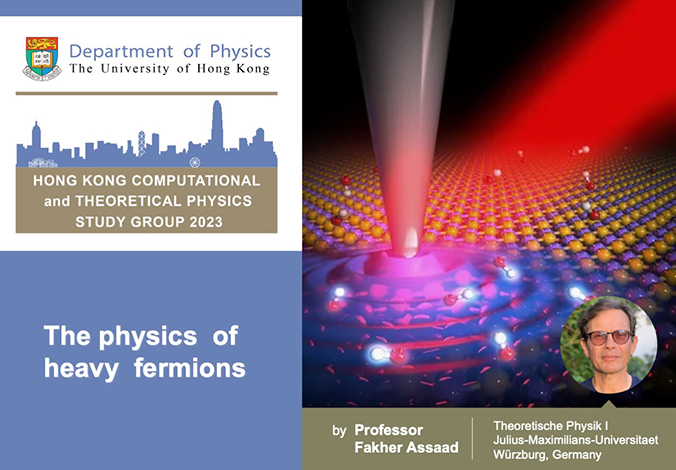
Professor Fakher Assaad
April 26, 2023 | 4:30pm
- Heavy-fermion materials consist of arrays of magnetic impurities embedded in metallic environments. These compounds are characterized by a very large quasiparticle mass. They exhibit a host of fascinating quantum phase transitions, that we will discuss in detail during this lecture.
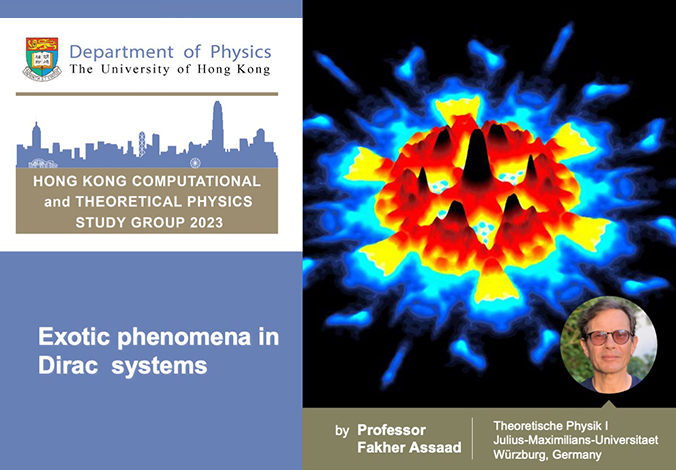
Exotic phenomena in Dirac systems
Professor Fakher Assaad
April 27, 2023 | 3:30pm
- In this lecture, Prof Fakher Assaad will review work on a model of Dirac fermions that exhibit quantum spin-Hall and superconducting phases, and that realizes the notion of skymion superconductivity.
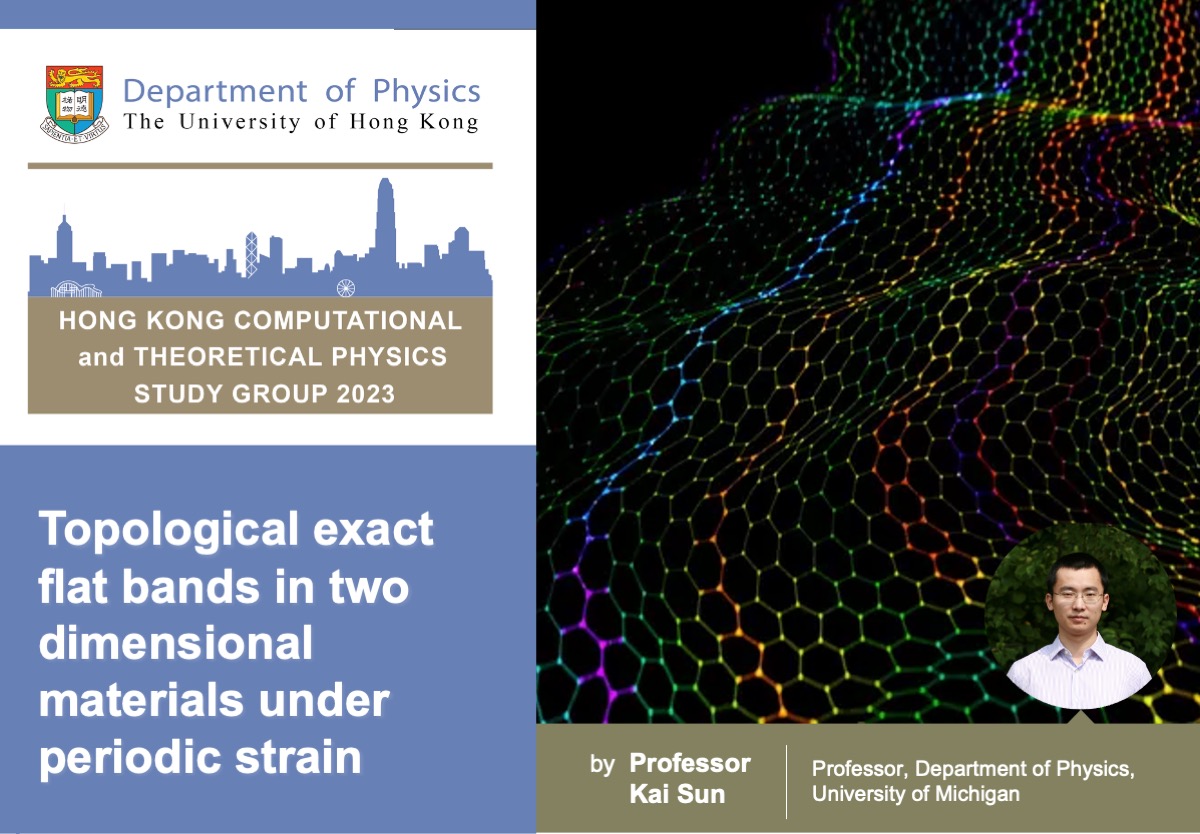
Topological exact flat bands in two dimensional materials under periodic strain
Professor Kai Sun
April 28, 2023 | 3:30pm
- In this lecture, We study flat bands and their topology in 2D materials with quadratic band crossing points (QBCPs) under periodic strain.
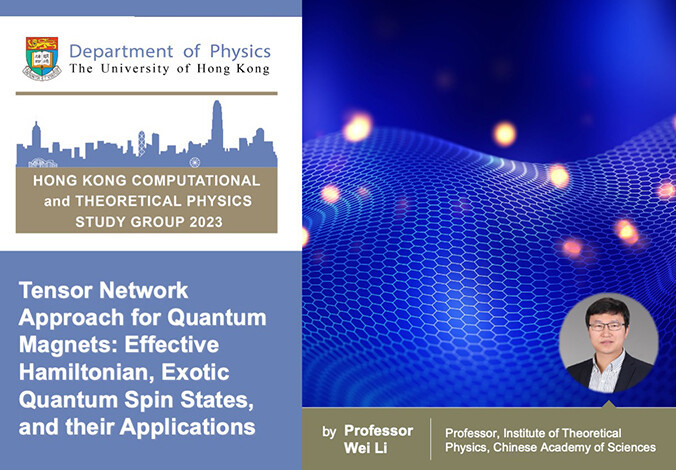
Tensor Network Approach for Quantum Magnets: Effective Hamiltonian, Exotic Quantum Spin States, and their Applications
Professor Wei Li
May 3, 2023 | 3:30pm
- In this talk, Professor Wei Li will present a thermal data-driven and efficient approach learning the effective Hamiltonian of quantum magnets through tensor network simulations.
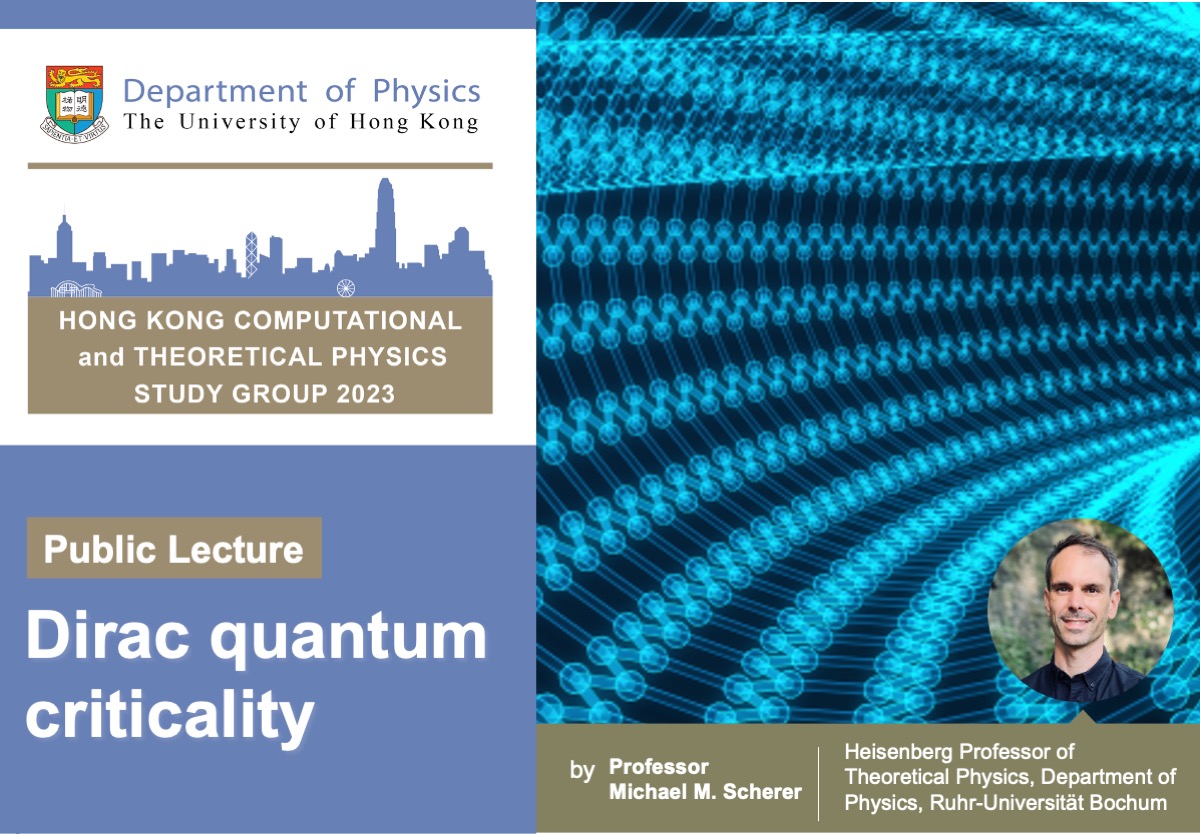
(Public Lecture) Dirac quantum criticality
Professor Michael M. Scherer
May 4, 2023 | 10:30am
- In this talk, Professor Michael M. Scherer will show some results on Gross-Neveu critical behavior using field theoretical approaches beyond the leading order.
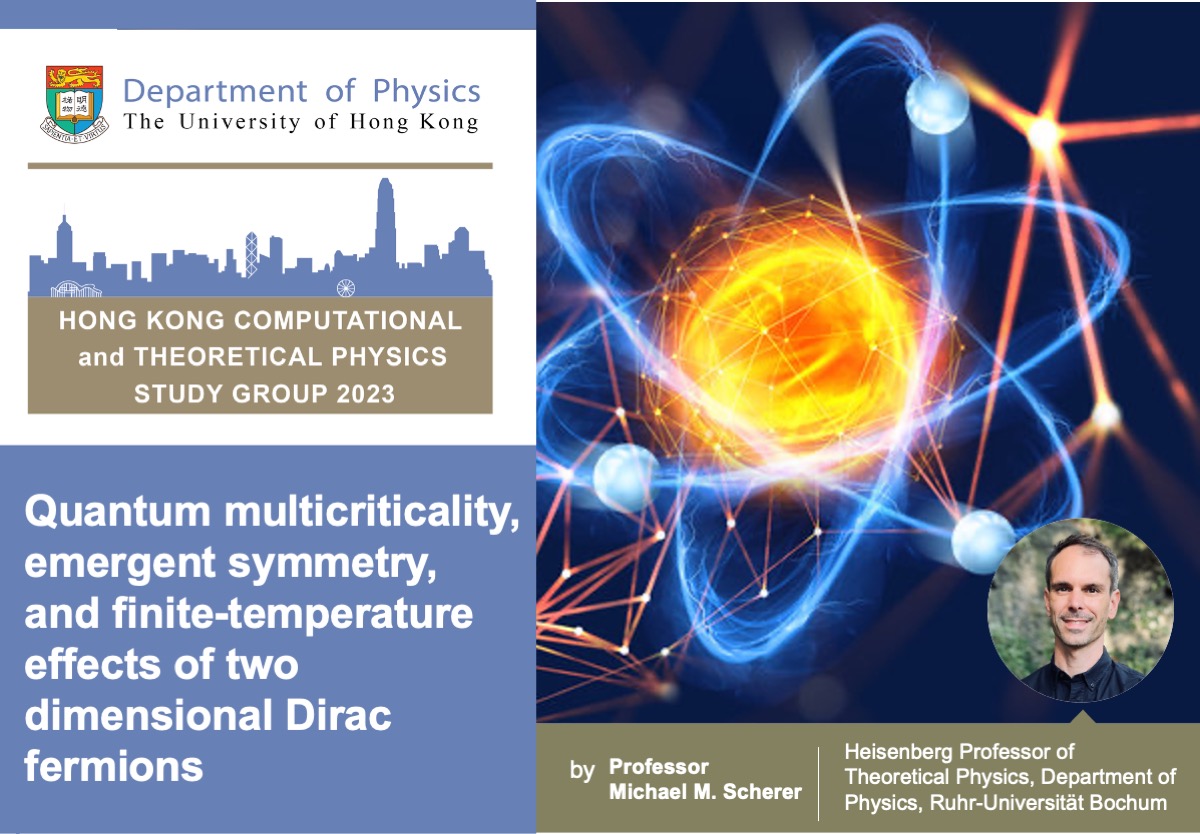
Quantum multicriticality, emergent symmetry, and finite-temperature effects of two dimensional Dirac fermions
Professor Michael M. Scherer
May 4, 2023 | 3:30pm
- In this talk, Professor Michael M. Scherer will discuss how symmetries can emerge at such points based on renormalization group calculations and will also compare to recent quantum Monte-Carlo simulations and discuss conflicting results and open questions.
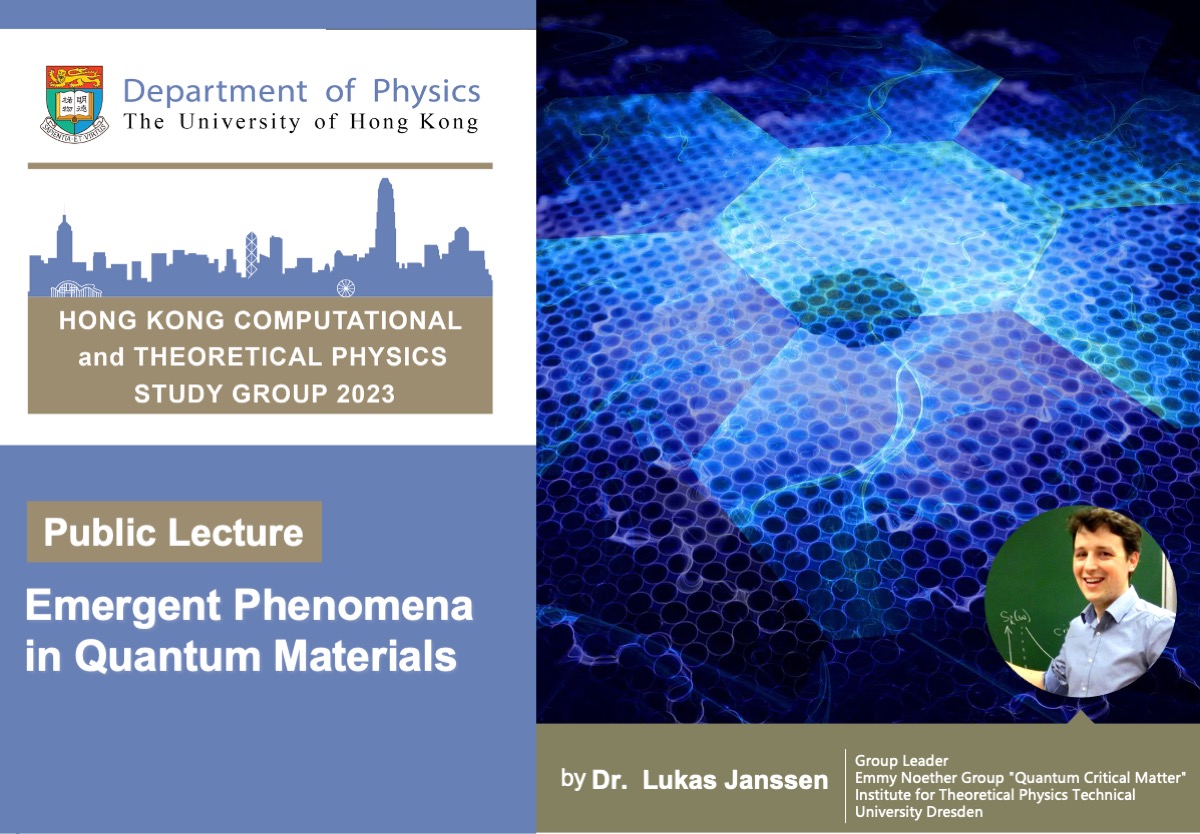
(Public Lecture) Emergent Phenomena in Quantum Materials
Dr. Lukas Janssen
May 6, 2023 | 10:00am
- In this lecture, Dr. Lukas Janssen will review our search for such collective phenomena in metals, semimetals, and correlated insulators.
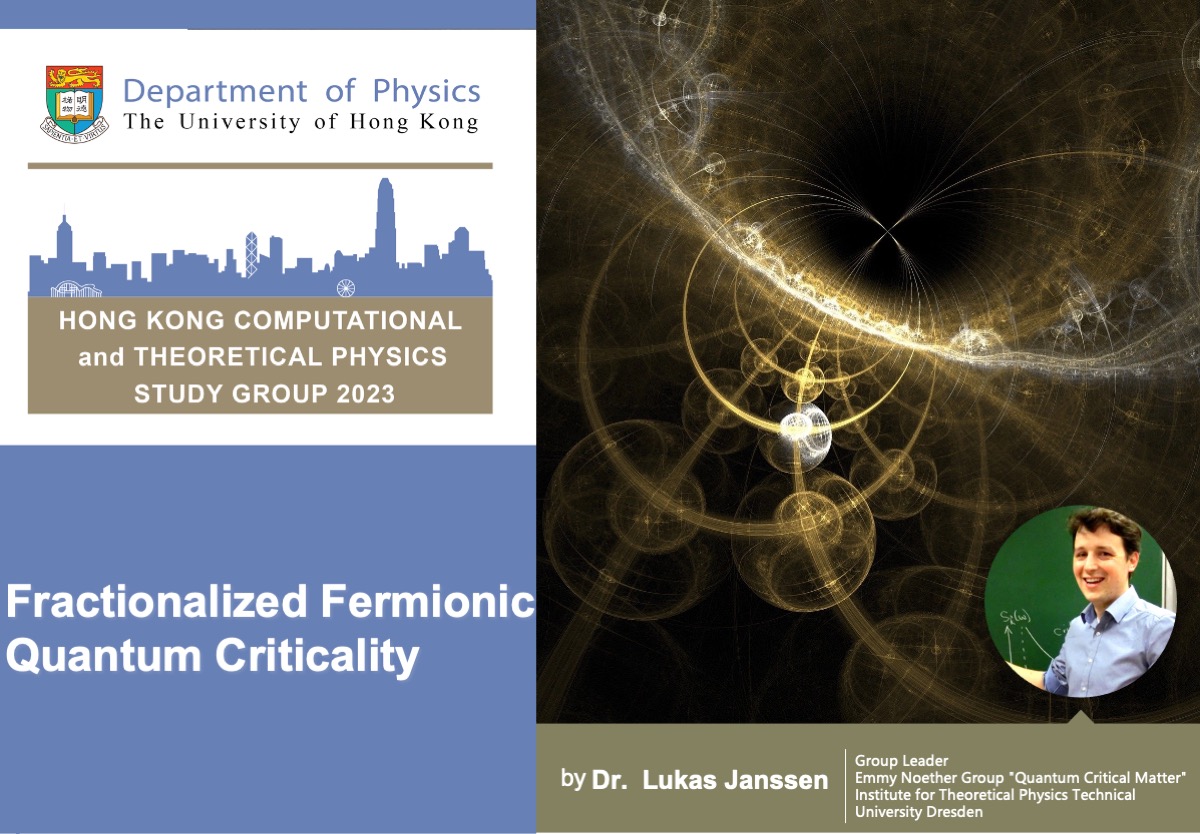
Fractionalized Fermionic Quantum Criticality
Dr. Lukas Janssen
May 7, 2023 | 1:30pm
- Dr. Lukas Janssen will demonstrate that the Kitaev solution can be generalized to systems with spin and orbital degrees of freedom.
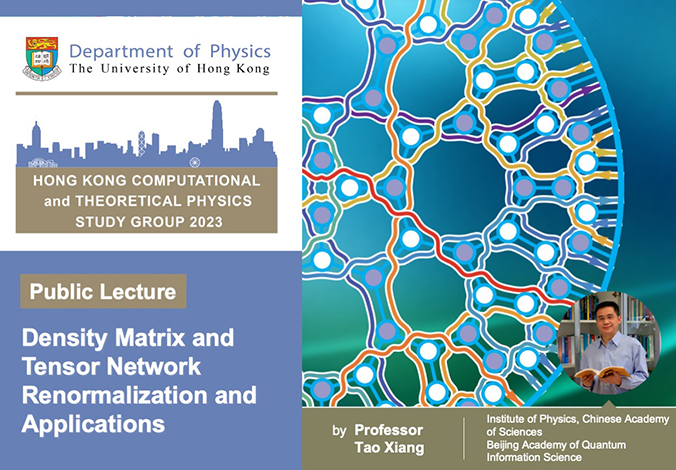
(Public Lecture) Density Matrix and Tensor Network Renormalization and Applications
Professor Tao Xiang
June 2, 2023 | 10:00am
- In this lecture, Professor Xiang will delve into the physical background and fundamental ideas that underlie the development of this field.
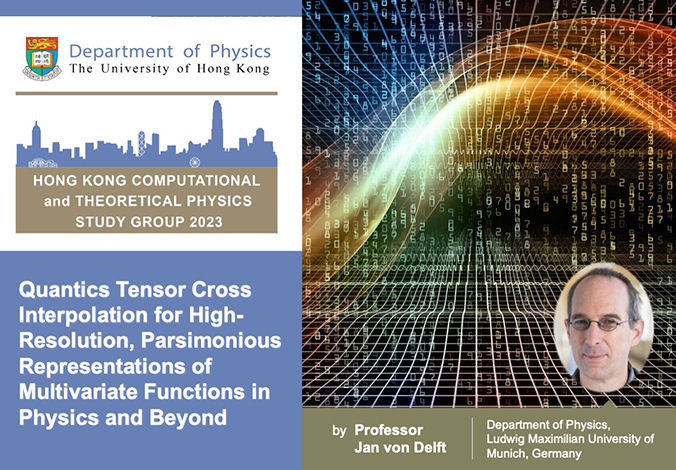
Quantics Tensor Cross Interpolation for High-Resolution, Parsimonious Representations of Multivariate Functions in Physics and Beyond
Professor Jan von Delft
June 2, 2023 | 3:30pm
- In this lecture, Professor Jan von Delft will present a strategy, quantics TCI (QTCI), which combines the advantages of both schemes.
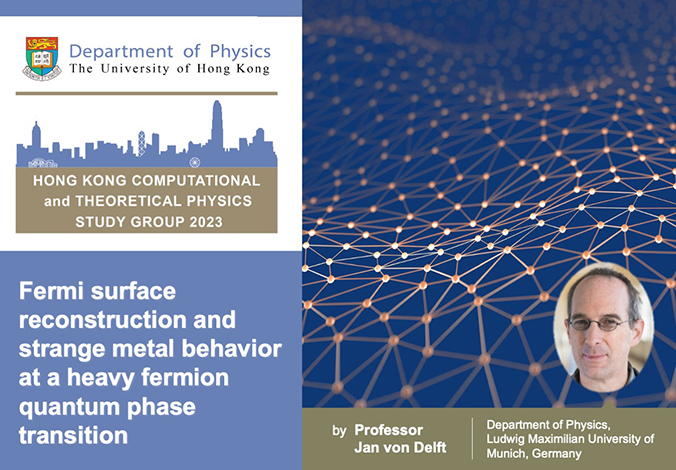
Fermi surface reconstruction and strange metal behavior at a heavy fermion quantum phase transition
Professor Jan von Delft
June 3, 2023 | 3:30pm
- In this lecture, Professor Jan von Delft will address the sudden reconstruction of the Fermi surface (FS) at the Kondo breakdown (KB) quantum critical point (QCP) in heavy fermion systems.

